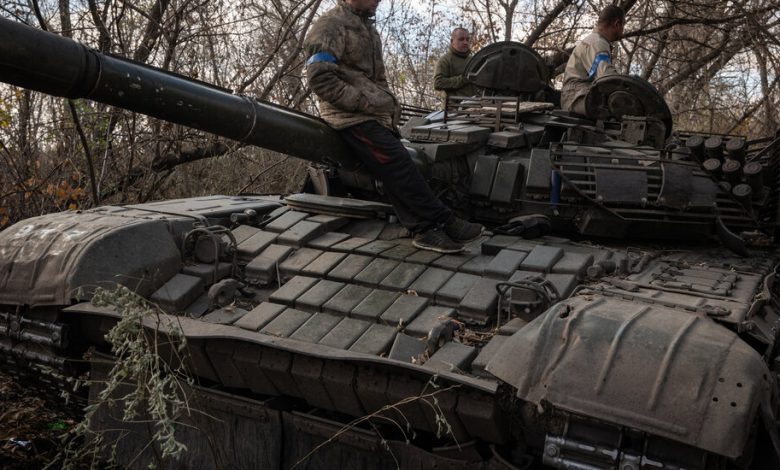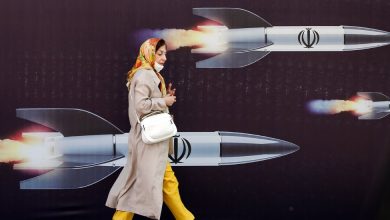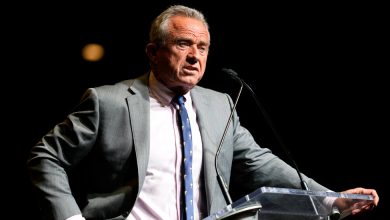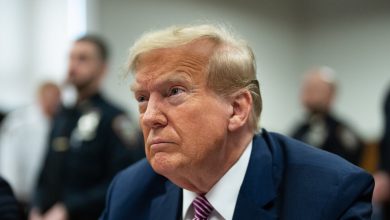NATO Leaders Try to Pin Down U.S. on Ukraine Aid as Republicans Waver

With Republicans in Congress stalling on granting Ukraine more military aid, NATO’s top diplomat warned on Tuesday that it would be “dangerous” to curtail support to the war as member countries tried to pin down the United States on its commitments to Kyiv and as the conflict in Gaza saps Washington’s attention.
As foreign ministers gathered Tuesday at the military alliance’s headquarters, the NATO secretary-general, Jens Stoltenberg, insisted that Ukraine would remain a top priority. He predicted that U.S. assistance would continue — not only to protect American security interests but also because it’s “what we have agreed.”
“It’s our obligation to ensure that we provide Ukraine with the weapons they need, because it will be a tragedy for Ukrainians if President Putin wins,” Mr. Stoltenberg told journalists in Brussels at the start of two days of meetings of the military alliance. “It will also be dangerous for us.”
“The challenge now is that we need to sustain the support,” Mr. Stoltenberg said. He added: “We just have to stay the course.”
A White House proposal to send Ukraine about $61.4 billion in additional emergency aid — out of an overall $105 billion plan — has stalled in the Republican-led House. That has left the United States with less than $5 billion available to contribute to the war; American military aid to Ukraine has so far totaled about $45 billion in weapons and equipment.
The American secretary of state, Antony J. Blinken, tried to assuage concerns among NATO leaders.
“We will be strongly reaffirming our support for Ukraine as it continues to face Russia’s war of aggression,” Mr. Blinken said a few hours later, as he headed into Tuesday’s meetings.
The pointed remarks underscored NATO’s attempts to deter Russia as its war in Ukraine approaches the two-year mark — and as all indications suggest the conflict will likely drag out for far longer.
What was once a resounding show of unity within the military alliance has given way to fears that top Republicans in the United States will back away from continuing to support the surge of weapons the West has been sending to Ukraine since Russia invaded in February 2022. At the same time, NATO’s plans to include Sweden as a full member remain snarled within the alliance, upending efforts to project a common front among alliance members.
The Biden administration, eager to support Ukraine and remain a reliable partner within NATO, has predicted that the war funding will be approved by year’s end.
“It is critical for U.S. security, for alliance security, and for our key partners to feel secure, that we provide the assistance that’s requested,” James O’Brien, the assistant secretary of state for European policy, told journalists on the eve of the meetings in Brussels.
But Representative Mike Turner, Republican of Ohio and chairman of the House intelligence committee, said of war funding in an interview on NBC’s “Meet The Press” on Sunday that “it’d be very difficult to get it done by the end of the year,” given an current mood in Congress.
NATO’s assurances are particularly critical as Ukraine heads into an uncertain winter, with dwindling stockpiles of ammunition and other weapons as it tries to protect its power grids and advance an offensive that has struggled to gain ground in the country’s south and east.
Mr. Stoltenberg acknowledged that Ukraine had not pushed the front lines drastically further into Russian-held territory over the last year. But he said its forces were holding their own against Russia’s much larger army.
“The intense fighting continues,” he said.
Perhaps mindful of the uncertainty of allied support for Ukraine, several diplomats said on Tuesday that the alliance should pin down long-term security commitments and “define together what are the next steps in order not to create expectations that we will be not able to fulfill,” said Mariya Gabriel, Bulgaria’s foreign minister.
Canada’s foreign minister, Mélanie Joly, echoed that concern.
“While what is happening in the Middle East is taking a lot of our attention, we need to make sure that we are always focused on Ukraine,” Ms. Joly said.
“Ukraine has a lot, but needs more,” she added. “There’s been lots of words. We need even more action, and that is why we’ll be talking about the implementation of our commitments.”
Looming over Tuesday’s meetings was a still-unfulfilled pledge by Turkey and Hungary to ratify Sweden as NATO’s 32nd member state, as was proposed 18 months ago.
The parliaments of both countries have stalled in approving Sweden’s membership. Turkey has raised concerns about Stockholm’s human rights protections of Kurdish P.K.K. militants, whom much of the West considers terrorists. And Hungary is largely waiting for Turkey to move on approving Sweden.
A slew of foreign ministers expressed disappointment on Tuesday that Sweden’s application remained stalled.
“The membership of Sweden is highly crucial for the entire alliance,” said Elina Valtonen, the foreign minister of Finland, which itself joined NATO as a full member this past April, discarding years of neutrality after Russian’s invasion.
The Turkish foreign minister, Hakan Fidan, did not make any promises.
“I am sure we will have very frank and open discussions,” Mr. Fidan said ahead of a private meeting with Mr. Blinken.




